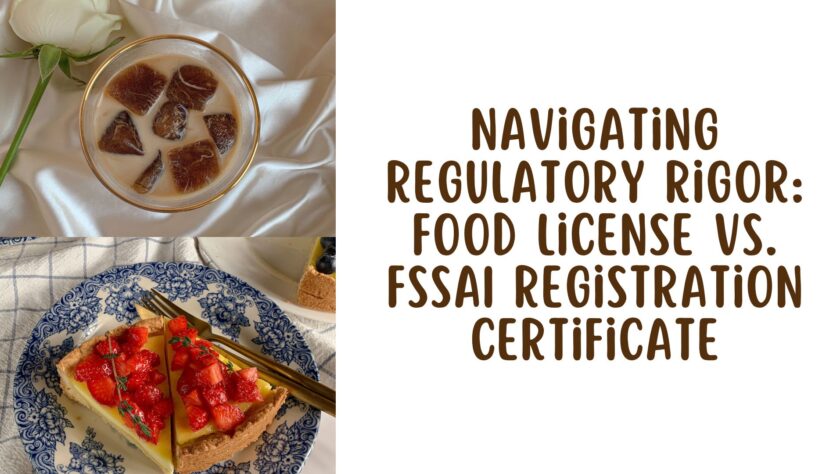In the dynamic landscape of the food industry, ensuring compliance with regulatory standards is paramount. Among the many regulations governing food businesses, obtaining the necessary licenses and certifications is a critical step towards operating legally and responsibly. In India, the Food Safety and Standards Authority of India (FSSAI) plays a central role in ensuring food safety and hygiene standards are met. Two key documents issued by the FSSAI are the Food License and the FSSAI Registration Certificate. While both serve the purpose of regulatory compliance, they differ significantly in their scope, requirements, and implications for food businesses.
Understanding the Basics
Food License:
A Food License, also known as a Food Safety License or FSSAI License, is a mandatory requirement for businesses involved in food manufacturing, processing, packaging, storage, transportation, distribution, and sale. It is issued by the FSSAI and is applicable to food businesses operating at a larger scale.
FSSAI Registration Certificate:
The FSSAI Registration Certificate, on the other hand, is required for small-scale food businesses. It is issued by the FSSAI and is applicable to businesses with annual turnover below a certain threshold.
Key Differences
Scope of Operations:
- Food License covers a broader spectrum of food-related activities, including manufacturing, processing, packaging, storage, transportation, distribution, and sale.
- FSSAI Registration Certificate is typically for small-scale businesses with limited turnover and a narrower scope of operations.
Eligibility Criteria:
- Food License requires compliance with more stringent criteria, including infrastructure requirements, food safety management systems, and quality control measures.
- FSSAI Registration Certificate has less stringent criteria and is designed to accommodate smaller businesses with simpler operations.
Validity and Renewal:
- Food License is usually valid for 1 to 5 years, depending on the type of license and jurisdiction, and requires periodic renewal.
- FSSAI Registration Certificate is typically valid for 1 to 5 years as well but may have simpler renewal procedures compared to the Food License.
Cost and Documentation:
- Food License involves higher costs due to the comprehensive documentation, infrastructure requirements, and regulatory compliance measures.
- FSSAI Registration Certificate is relatively more affordable, with fewer documentation requirements, making it accessible to small-scale businesses.
Penalties for Non-Compliance:
- Non-compliance with Food License regulations can result in severe penalties, including fines, product recalls, and even closure of the business.
- FSSAI Registration Certificate holders may face milder penalties for non-compliance, but it can still lead to fines and legal repercussions.
Choosing the Right Option
Selecting between a Food License and an FSSAI Registration Certificate depends on various factors, including the scale of operations, nature of business activities, and long-term growth objectives. Larger businesses with complex operations and higher turnovers are better suited for obtaining a Food License, considering the comprehensive regulatory requirements and broader scope of activities it covers. Conversely, small-scale businesses with limited turnovers and simpler operations may opt for an FSSAI Registration Certificate, which offers a more streamlined process and lower compliance burden.
Note: You Can Apply for Food Licence Renew Online Through FSSAI Portal
Conclusion
In conclusion, regulatory compliance is non-negotiable in the food industry, and obtaining the necessary licenses and certifications from the FSSAI is essential for ensuring food safety and hygiene standards. While both the Food License and the FSSAI Registration Certificate serve the purpose of regulatory compliance, they cater to different segments of the food industry and vary in terms of scope, eligibility criteria, costs, and compliance requirements. Businesses must carefully assess their operational needs, resources, and growth aspirations to make an informed decision regarding which option best suits their requirements. Ultimately, adherence to regulatory standards not only fosters consumer trust but also contributes to the long-term success and sustainability of food businesses in India.
